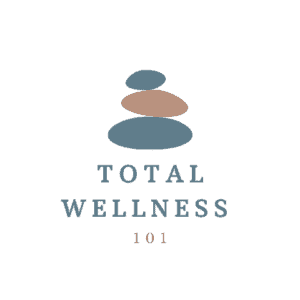Creatine is probably the most popular and well-studied workout supplement on the market. Its benefits for performance and health have been shown time and time again. However, the question that arises is whether it is just something to take around your workouts or if you should take creatine on rest days as well? It is understandable to ask since you don’t want to waste something you’ve paid money for or overdo it. However, understanding a little more about how creatine works will essentially answer that question for you here.
But to not make you wait too long for that answer, in short, you should take creatine even on rest days. The benefits of creatine are tied to it being saturated in your system, so you need to constantly supplement with it to maintain those high levels. That way when you return to the gym the next day, your levels are where they should be.
What Is Creatine?
Creatine is a compound that can help the body to build muscle mass and increase endurance. It does this by increasing the body’s ability to generate energy rapidly. Muscle cells use ATP for energy and creatine is used by cells to make and store ATP. There are several types of creatine that exist. One is creatine phosphate, which is found in meat and can be created by the body. Creatine monohydrate is also found in fish and meat and is the most common type of creatine used as a supplement. Another supplement form is creatine hydrochloride (HCL) and is slightly easier on the stomach and requires smaller doses. This form is typically better though it may be more expensive.
Creatine is created in the body as well using three amino acids: arginine, glycine, and methionine. It is made in the kidneys, liver, and pancreas. In the body, creatine is stored in the muscles and brain. Creatine supplements are used to “supplement” the levels of creatine you already produce and increase strength and muscle mass. They are used by bodybuilders, football players, and other athletes. Creatine supplements can also be used to treat conditions related to the muscles, such as muscular dystrophy and muscle wasting. They continue to study and find more benefits of creatine supplementation regularly.
Why Should I Take Creatine on Rest Days?
One of the most commonly asked questions is whether or not an athlete should take creatine on their rest days as well as their workout days. It’s important to understand first of all how creatine supplementation works. Before you can see the most benefits from creatine, you have to first saturate your muscles with it. Most creatine advocates recommend a “loading” phase when starting on creatine which involves taking higher doses at the start and then dropping down to maintain. Others advocate for just a steady intake from the start though that may take longer to saturate your muscles.
Creatine starts benefitting your muscles and performance once they are saturated in your system. So you won’t see immediate benefits from creatine intake, like with most things. It will usually take 1-4 weeks depending on your dosage to start noticing benefits. The idea behind taking creatine on rest days is that it will keep your muscles filled with creatine, which will allow them to retain water. The extra water in your muscles will allow them to be larger and more full-looking. This can be quite useful if you’re a bodybuilder during your off season and want to retain mass.
If you go off of creatine supplementation for too long, you could lose some of the benefits of it and need to saturate your system again. So though it may not be a huge difference if you miss one day, the most beneficial way to supplement with creatine would be to take it on a regular basis. Most supplement with about 5 grams of creatine monohydrate or 2 grams of creatine HCL to keep up creatine stores in the body.
How to Take Creatine?
You can take creatine supplements on their own with a drink but many pre and post workout supplements already contain creatine as well. It is in the form of a fine powder and you need to ensure that you take it with enough liquid so that it can fully dissolve. (Read also, How Much Water Should I Drink if I Take Creatine?) If it doesn’t dissolve and clumps at the bottom, you risk having it clump in your intestines too, absorbing water which can cause gastrointestinal discomfort. This occurs more with creatine monohydrate. Supplements like Pre Jym and Post Jym contain creatine HCL which dissolves better and reduces the risk for stomach issues.
It may be a good idea to take a little bit of creatine both before and after your workout for better results. However, as a general rule you just want to make sure you take it close to your workouts to experience benefits in performance and recovery.
It is better taken with some food or carbohydrates like a glass of grape juice for example. The insulin release helps with its absorption into your system.
We had mentioned a creatine loading phase before. However, you can also simply take 3-5 grams of monohydrate a day and you will still receive the benefits though it will take a few more weeks to saturate in your muscles.
The good thing about creatine is that it is cheap when bought on its own or already available in your pre-workout making it very accessible and one of the first supplements people try.
Conclusion
Creatine is a safe and effective tool for increasing performance in the gym. It has been studied more than any supplement in the industry and there isn’t really a downside to it other than possible stomach discomfort. Saturation is key when it comes to creatine use so it is a good idea to continue consuming it on your rest days to ensure your levels don’t drop. There is no harm in taking it on a day that you don’t work out. It will only aid in recovery and keep you ready for when you go back to the gym again.
So maybe research and give creatine a try if you haven’t already! Plenty of people have done so before you and gotten great results!
Recent Posts
In the pursuit of professional success, the modern working professional often finds solace in a cup of coffee or energy drink. Caffeine, the world's most widely consumed psychoactive substance, has...
Strategies for Sales Professionals to Reduce Back Pain and Injuries
In the fast-paced world of sales, professionals often find themselves navigating through long hours, client meetings, and constant travel. Amidst the pursuit of closing deals and meeting targets, the...

